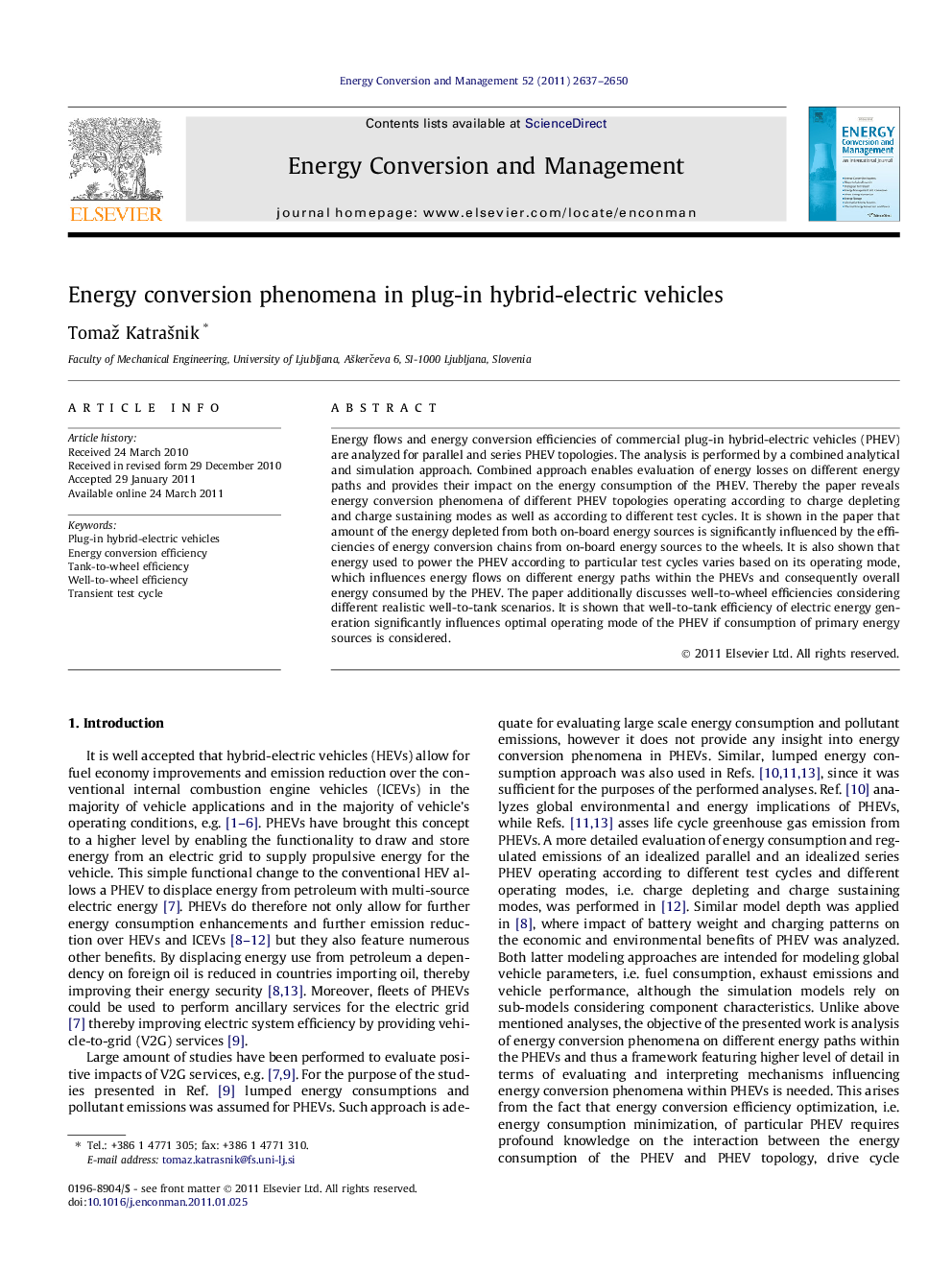| Article ID | Journal | Published Year | Pages | File Type |
|---|---|---|---|---|
| 764471 | Energy Conversion and Management | 2011 | 14 Pages |
Energy flows and energy conversion efficiencies of commercial plug-in hybrid-electric vehicles (PHEV) are analyzed for parallel and series PHEV topologies. The analysis is performed by a combined analytical and simulation approach. Combined approach enables evaluation of energy losses on different energy paths and provides their impact on the energy consumption of the PHEV. Thereby the paper reveals energy conversion phenomena of different PHEV topologies operating according to charge depleting and charge sustaining modes as well as according to different test cycles. It is shown in the paper that amount of the energy depleted from both on-board energy sources is significantly influenced by the efficiencies of energy conversion chains from on-board energy sources to the wheels. It is also shown that energy used to power the PHEV according to particular test cycles varies based on its operating mode, which influences energy flows on different energy paths within the PHEVs and consequently overall energy consumed by the PHEV. The paper additionally discusses well-to-wheel efficiencies considering different realistic well-to-tank scenarios. It is shown that well-to-tank efficiency of electric energy generation significantly influences optimal operating mode of the PHEV if consumption of primary energy sources is considered.
Research highlights► Energy conversion phenomena of PHEVs for different drive cycles and depletion rates of energy sources. ► Detailed physically based framework for analyzing energy conversion phenomena in PHEVs. ► Interaction of energy flows and energy losses with energy consumption of the PHEV. ► Identification and explanation of mechanisms leading to optimal tank-to-wheel efficiency. ► Analysis of well-to-wheel efficiencies for different realistic well-to-tank scenarios.
